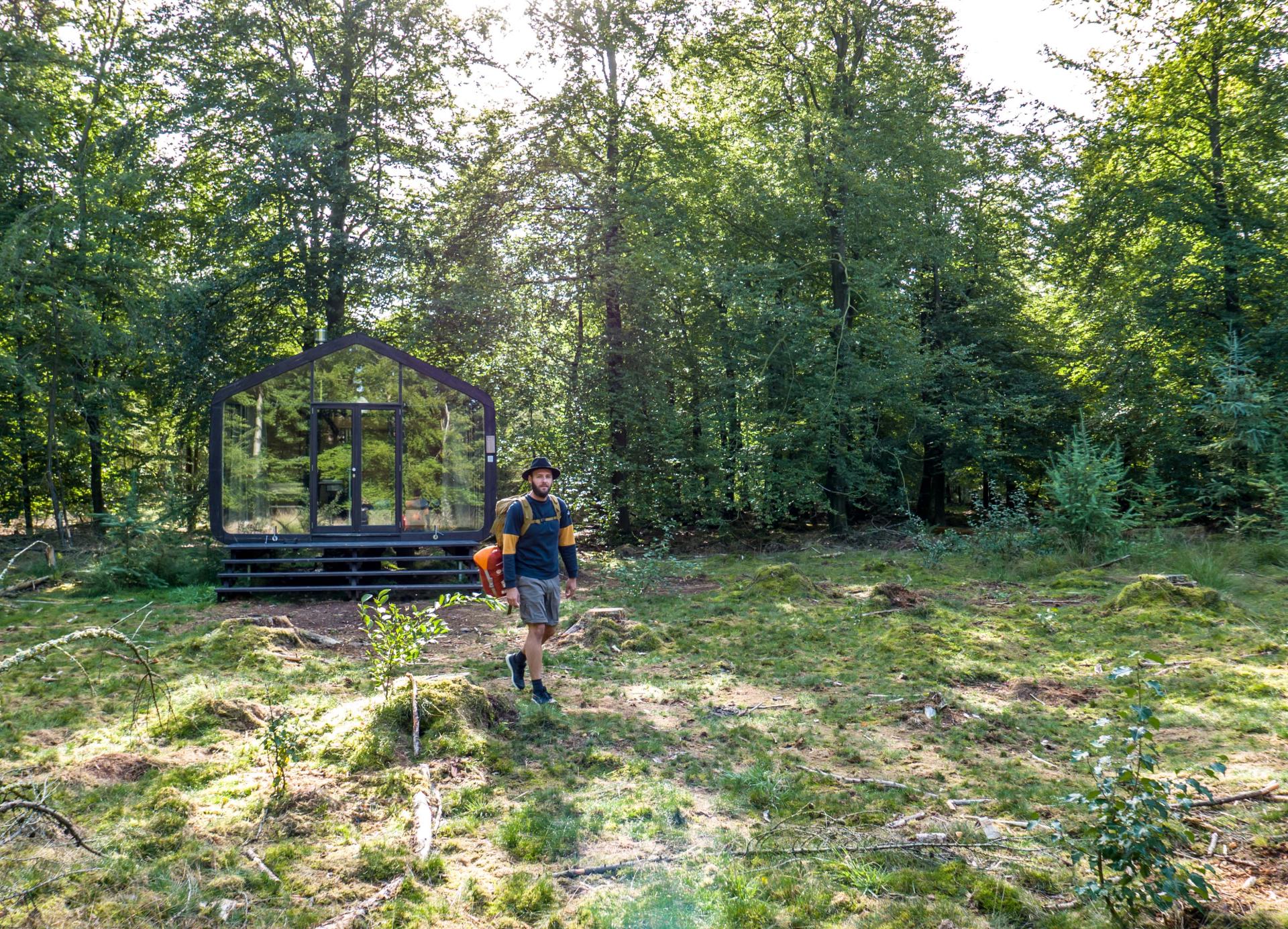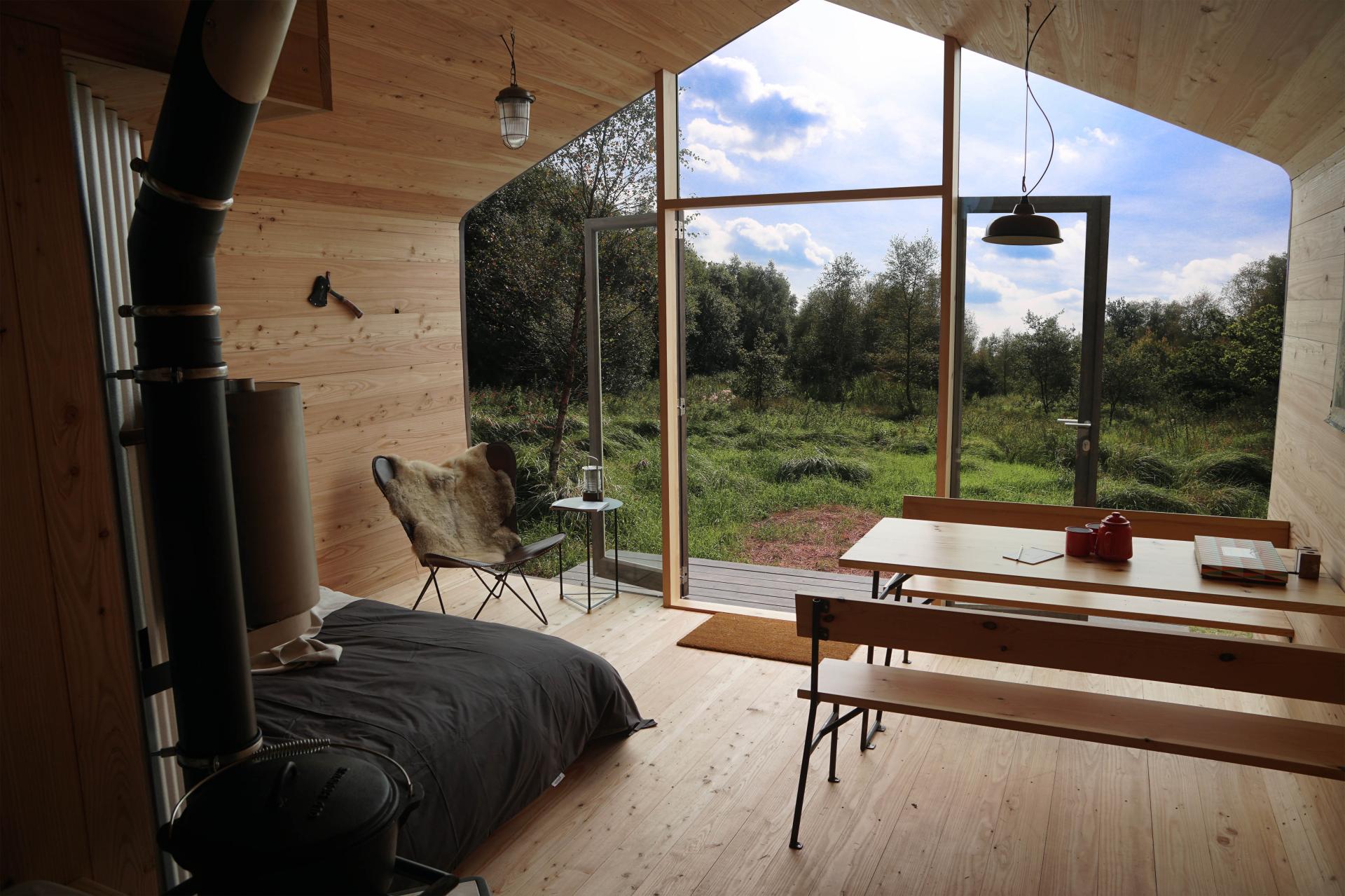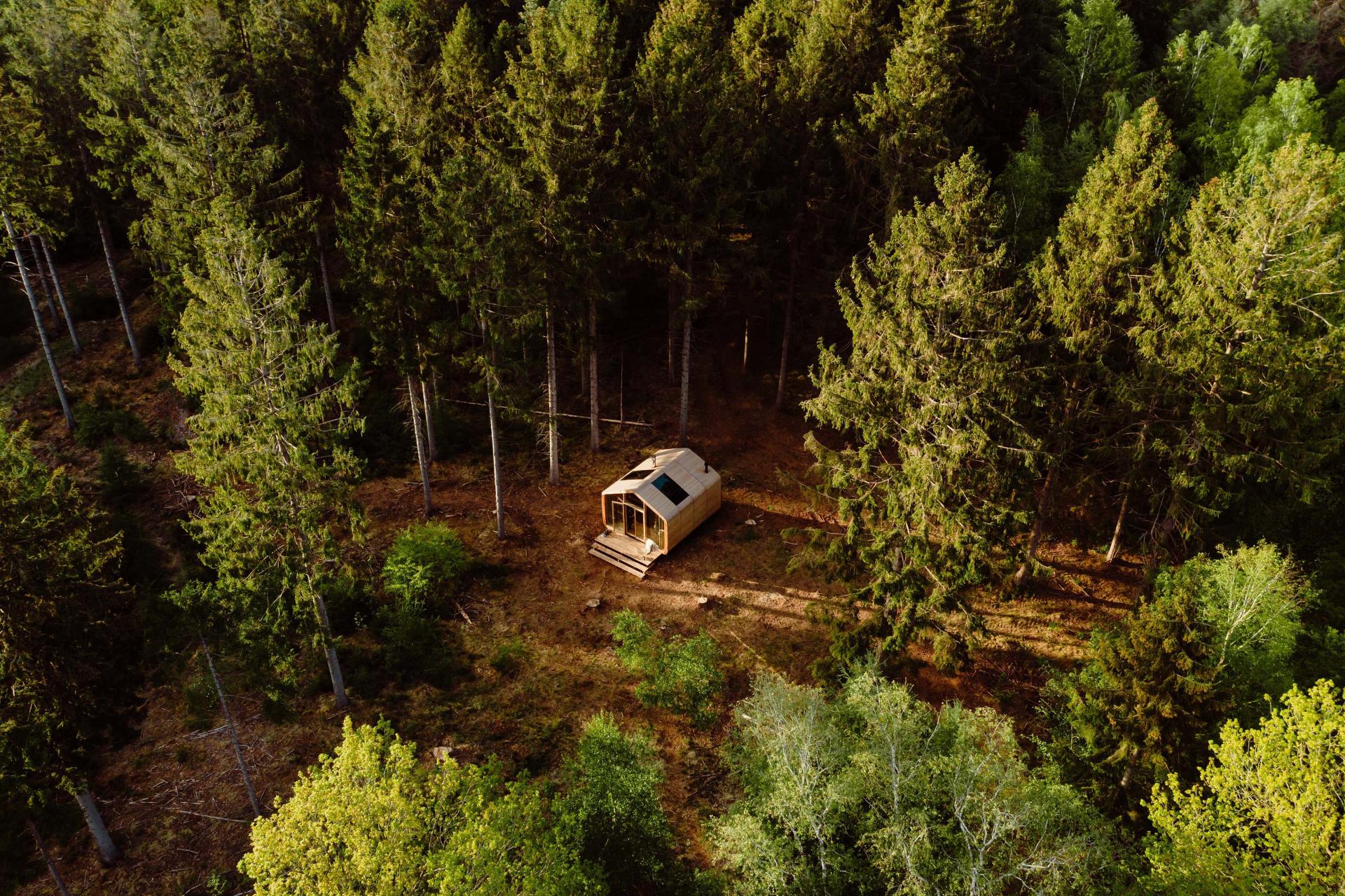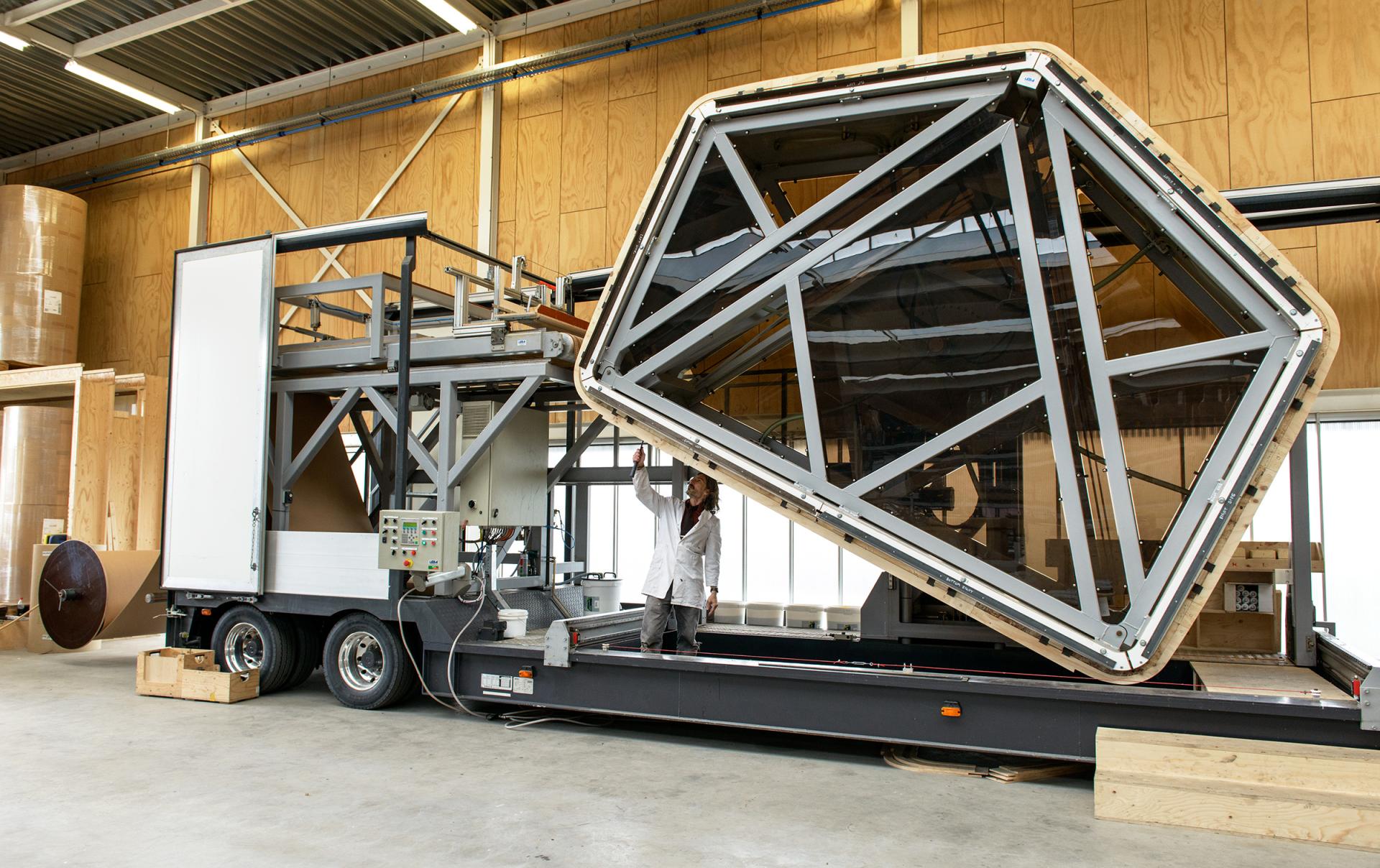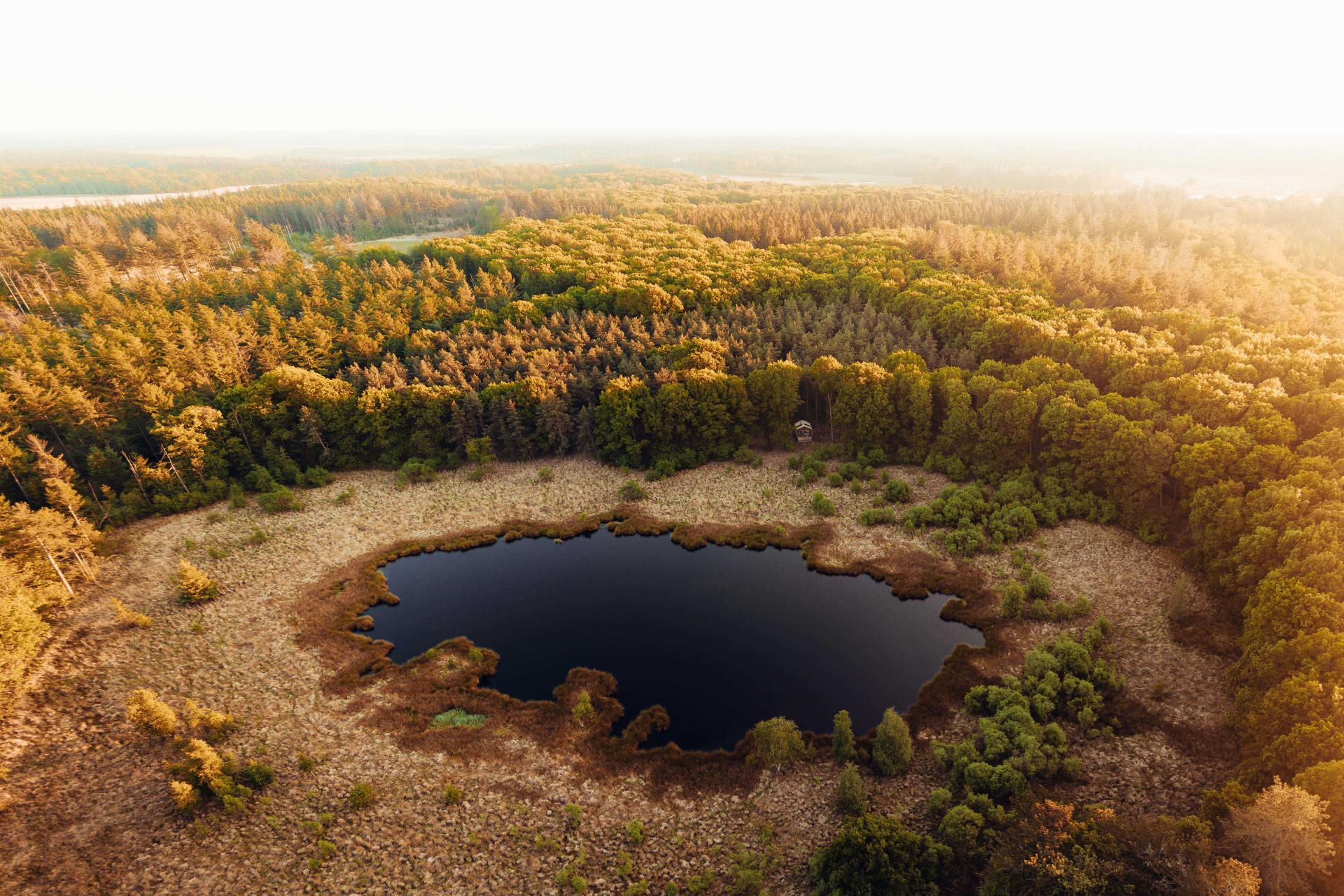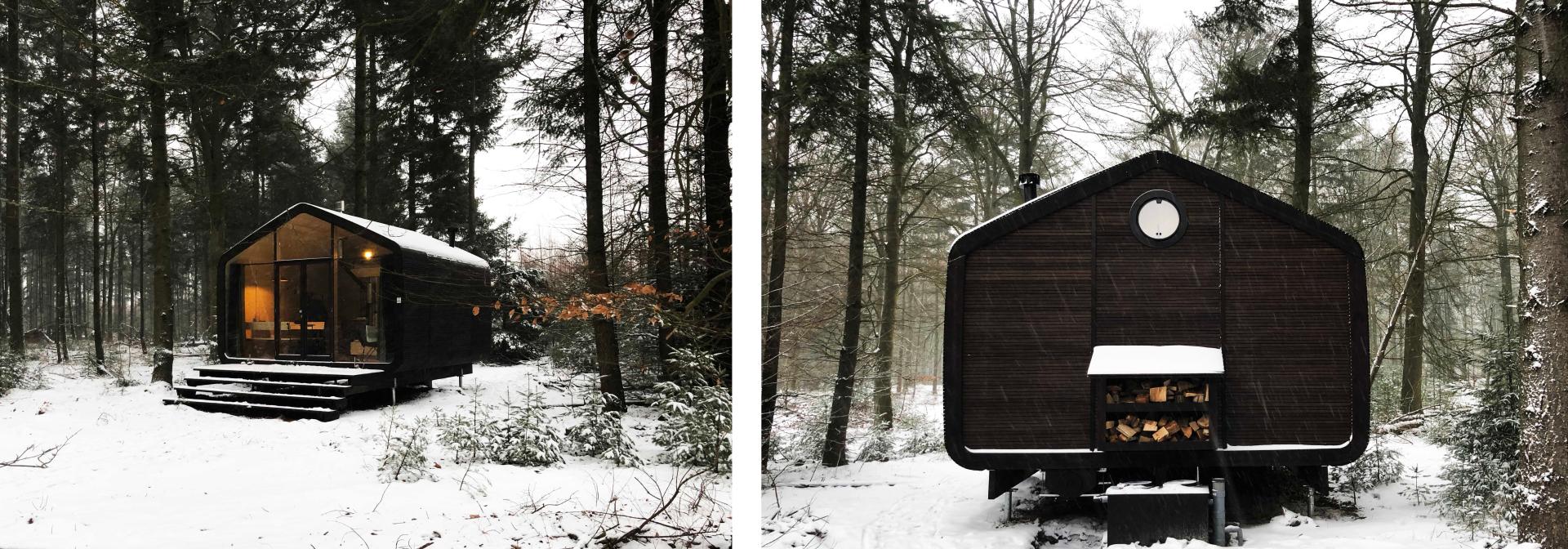Cabiner – Connecting People and Nature
Basic information
Project Title
Full project title
Category
Project Description
Cabiner is a network of innovative off-grid cabins blended in the natural environment connected by hiking routes, delivering a positive impact on biodiversity and the local economy.
Only accessible by foot, the circular designed cabins are temporarily placed in nature reserves. The hike and remote overnight stay offer visitors a unique nature experience. We help to protect local nature environment by investing revenue and show the potential of sustainable nature-based tourism close to home.
Project Region
EU Programme or fund
Description of the project
Summary
Cabiner is a network of innovative off-grid cabins and hiking routes across Europe’s remote natural areas, connecting people and nature. The small hiking cabins are designed in a spirit of circularity and aesthetics, providing a comfortable, beautiful and sustainable accommodation (4 people capacity).
The cabins are only accessible on foot and designed to be part of their surroundings. Made from elements such as cardboard and wood, the hiking cabins are circular and blend into the natural landscape. After just a short distance they become barely visible to the casual observer passing by.
The hike and remote overnight stay, in beautiful wilderness setting, offer visitors a unique off-grid nature experience, going back to the essential and with intuitive contact with the elements: water, earth, fire and light. Through the self-sustained circular design of the cabin, power, water and heat are all generated and controlled by the cabin itself and no trace if left behind. The project approach and experience show the potential of sustainable nature-based tourism close to home.
By staying in Cabiner, visitors help to protect the nature they enjoy, given a part of revenue is reinvested to protect the local natural environment, by contributing to nature projects protecting the ecosystem and biodiversity, and to planting trees; thereby delivering a positive impact on biodiversity in the nature reserves where the cabins are located. By hiring people in an inclusive way and buying local products and services, Cabiner also supports the local economy in the rural areas around the cabins.
An additional dimension seeks to place temporary hiking cabins in nature reserves covering national cross-borders areas so people can make hiking journeys across (national) parks and between EU countries. Thereby blurring borders and connecting Europe’s diverse cultures and citizens through the common joy of hiking and connecting to nature.
Key objectives for sustainability
Cabiner sustainability objectives are set and implemented in 3 main areas:
1. Cabins are based on a self-sustained circular design and use cardboard as their main building material. They are based on a groundbreaking construction technique that involves an innovative rotating mold tool to generate the house-shaped structure. The structure consists of a total of 24 layers that are bonded together using environmentally friendly glue. The result is a robust sandwich structure with optimal insulation properties. Moreover, the processed cardboard also has a delightful aesthetic appeal and possesses exceptional constructive strength. The off-grid technology allows us to operate in remote areas, delivering clean water and processing waste to ensure we comply with the strictest environmental standards. The cabins are placed maximum five years in one same location, to ensure the best possible impact on nature.
2. Staying at Cabiner is climate positive; more carbon is sequestered than emitted as the cabin generates energy with solar panels and has minimal emissions while operating due to the efficient wood stove. Part of revenue is reinvested to plant trees in the forest, or to restore the ecosystem and increase biodiversity, contributing to nature projects in the area. In addition, guests spend their leisure time or vacation close to home without the need to cover long distances or take an airplane.
3. Guests at Cabiner experience full off-grid living, leaving no trace behind. Prior to any stay, visitors will receive and commit to a Wilderness Declaration stating the 'laws of the wilderness'. People can enjoy vegan self-cooking, with products brought by them on their hike and meal packages provided by a local, organic supermarket providing in season ingredients and vegetables.
Combined these effects show an attractive and sustainable model for nature-based tourism that highlights and supports the development of local rural environments.
Key objectives for aesthetics and quality
Following a modern minimalist approach, our hiking cabins make impressive use of cardboard as a sustainable material for creating a robust, light and aesthetically appealing construction. The design consistency of both the exterior and the interior, is highly noteworthy. The use, touch and feel of processed cardboard, inside wood and natural materials contribute to the aesthetics and quality of experience for the guests. Only accessible on foot, the hiking cabins are made to be part of their surroundings, as a natural element, and totally blend into the natural landscape.
The inside is minimalist, and features a glass façade and wood materials which make the visitor feel still connected to the outside forest world from inside the cabin. We have applied the ‘less is more’ philosophy to the entire experience, bringing the cabin back to the essentials needed for an enjoyable stay: great comfortable beds for four people, a warm shower, kitchen, toilet, dining area and reading corner all on just 18 m2. No electricity plugs, wifi or screens ensure that time spent is focused on disconnecting from the daily routine, and most importantly connecting with the now, nature and with each other. All systems in the cabin are 'off-grid'. Power, water and heat are all generated and controlled by the cabin itself, waste is taken back by the visitor.
Through the self-sustained circular design of the cabin, and their focus on the essence, visitors are also brought back into intuitive contact with the elements: water, earth, fire and light. The wood stove is the heart of the cabin and is used to heat the house. At the same time, the fire heats the shower water and cooks your evening meal. Thanks to the hand-operated pump groundwater is available for fresh drinking water. The water is then used for showers and toilets. The waste water is first cleaned before it flows back into the ground. Power for lighting and ventilation system is generated by the roof solar panels.
Key objectives for inclusion
Both the People focus in its diverse human dimension and the focus on Nature, and their inter-connection, are core to Cabiner concept and mission.
Supporting human well-being, fairness and diversity, participation and inclusion are essential elements of the Cabiner philosophy, project design and values in our work. We strive to promote and implement inclusion and participation, as well as attention to gender balance and diversity in its broad sense, in relation to our internal work practices and teams, through an inclusive approach to local communities, sites and partnerships, and reaching out to diverse groups and customers base.
Our cabins are located in nature reserves, around which people live and work. By involving entrepreneurs and employees from the local communities and surroundings, we connect the interests of the nature reserve and the local environment.
In practice, maintenance and cleaning of the cabins is done by the local Cabiner teams, whereby we employ people with various disabilities, facing challenges and obstacles finding work on the labor market. The time spent in beautiful nature outdoors, low stress tasks and professional guidance ensure high levels of work satisfaction.
Digital tools are the main platform for all aspects of Cabiner work (from general communication and promotion, through cabin reservations and check-in and out systems, or accessing hiking routes information). Accessibility of the website is built based on Google Material Design Standards. Cabiner will sustain a continued focus on accessibility of digital platforms to be further improved as needed. The Cabiner website is also currently available in 5 European languages with a view to enable a wide access to the information.
Cabiner development across European nature sites will keep key consideration of aspects of inclusion and accessibility, including accessible pricing so many people will be able to experience the power of nature.
Results in relation to category
To protect nature and increase biodiversity, we directly invest part of revenue in the natural areas we operate in. Links with Staatsbosbeheer, State Forestry projects in the Netherlands, are determined for the most impact, creating a win-win enterprise and partnerships where more bookings and access to nature-based sustainable cabins (whilst kept at low scale) lead to more biodiversity. In addition, guests who experience our nature-based tourism concept take this sustainable mindset home after their stay leading to more awareness, which ideally could extend and be further applied to their daily life and surroundings.
As mentioned, cabins are based on a self-sustained circular design, using cardboard as their main building material. Only accessible on foot, they are made to be part of their surroundings, as a natural element and without leaving a trace. The result is a robust structure with optimal insulation properties and an aesthetic appeal based on processed cardboard, inside wood and natural materials.
We ensure compliance with the strictest environmental standards. Each cabin is temporarily placed and after a few years, the cabin will leave its place, and an idyllic piece of forest will once again become the exclusive domain of the original forest inhabitants. No trace is left behind after relocation, and after its life span, virtually all the materials of the cabin can be reused or sustainably dismantled.
How Citizens benefit
Our cabins are located in nature reserves, around which people live and work. By involving people and companies from the direct surroundings, we connect the interests of the nature reserve and the local environment, and support the local economy.
Maintenance and cleaning of the cabins is done by local Cabiner teams. The meal packages offered with booking are sourced from local farmers and in season products and prepared by a partner organic supermarket.
Through a local sustainable approach, and long-term partnerships with public authorities, communities, actors and nature owners, Cabiner contributes to building a sense of community bringing together like-minded people around shared values and commitments for the future of society and the natural environment.
We believe in the power of adventure in nature for human well-being and creativity. Those who experience this feel empowered and connected. New ideas arise and objections disappear. This is exactly how the idea for Cabiner originated, in the middle of nature.
We want this experience to be accessible to as many people as possible through sustainable nature-based tourism, close to home. By achieving this, we want to show that creating a profitable sustainable company, protecting nature and positively impacting local economies go hand in hand.
By consolidating a network of hiking trails and cabins in and between the most beautiful natural areas across European countries, Cabiner wants to connect not only people and nature, but also nature reserves with each other. The more national parks can be accessed and connected, the more people can experience the adventure and value of nature and the greater the contribution to the development of these nature areas and their biodiversity.
Let’s go off-grid: this Cabiner motto reconnecting with nature responds to a societal demand, of great benefit to people well-being and nature surroundings, which is reflected in the success of the project across existing locations.
Innovative character
Combining a hiking network in stunning natural areas with a self-sustained circular cabin made of cardboard is a groundbreaking concept. This unique concept is very successful in the Netherlands and is being rolled out, with equally successful prospects, to other European countries including Germany, Belgium, Croatia and Italy.
The Cabins are designed as a natural element, part of their surroundings. Each cabin is temporarily placed in an area, thanks to its light construction making it possible to be placed without a foundation, leaving no trace after relocation. Once the life span has expired, all the materials of the cabin can also be reused or sustainably dismantled.
All systems in the cabin are 'off-grid', operating without connection to public utilities. Power, water and heat are all generated and controlled by the cabin itself, waste is taken back by the visitor.
The inside of the cabin has been deliberately reduced to the essence, so that as a visitor you are brought into intuitive contact with the elements: water, earth, fire and light. The wood stove is the heart of the cabin and is used to heat the house. At the same time, the fire heats the shower water and cooks your evening meal. Thanks to the hand-operated pump you get groundwater for fresh drinking water. The water is then used for showers and toilets. The waste water is cleaned before it flows back into the ground. Power for lighting and ventilation system is generated by the roof solar panels.
The innovation also combines the design of the cabin, with the off-grid technology allowing it to operate in remote areas and the Cabiner digital platform allowing automatic check-in and check-out process, which also proved safe in respect of public measures during COVID pandemic crisis. In addition, the use of IoT technology turns cabins into smart structures that allow easy accessibility for guests and send crucial functional data back to Cabiner ensuring safety and regular maintenance.

